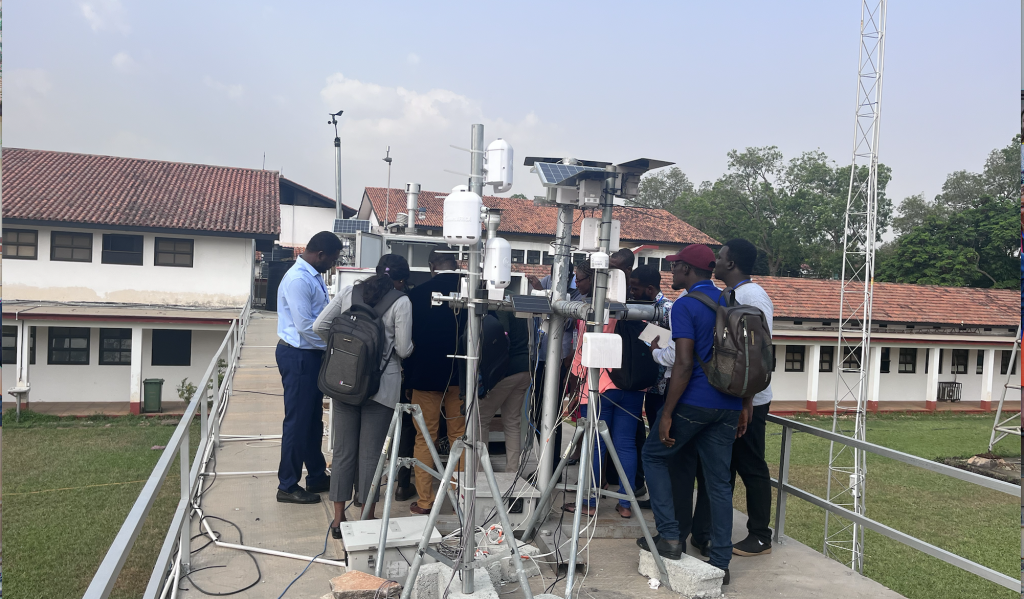By Albert Oppong Ansah
Accra, Jan. 17, GNA – The Air Sensor Evaluation and Training Facility (Afri-SET) at the Department of Physics, University of Ghana, is to train some 300 experts and students on low-cost air sensors installation, management and usage.
Low-cost air quality sensor is a device that is used to measure the levels of air pollution within a particular area.
Dr Allison Felix Hughes, a Senior Lecturer in the Department of Physics, University of Ghana, said this at the opening of the University of Ghana, Columbia University, Air Quality Certificate Programme for West African Professionals, underway in Accra.
The five-day training, which brought together participants from Ghana, Guinea, Liberia, Nigeria and Gambia, is part of a three-year research being funded by the United States America’s Department of State and the Clean Air Fund, UK.
Dr Hughes said the training sought to ignite innovation and motivate individuals and industry players to also build low-cost sensors to collect air quality data from communities.
The information gathered, he said, would inform policy decisions and help project implementation to control air pollution – a public health concern killing many and making people sick of respiratory related illness.
In Ghana alone 28,000 Ghanaians die annually prematurely due to air pollution. The World Bank found that air pollution cost the world economy over $5 trillion in economic welfare losses.

Dr Henry K. Kokofu, the Executive Director of the Environmental Protection Agency, commended the initiative noting that the causes of air pollution in Africa were similar hence the need for countries to exchange ideas and work together to improve air quality.
He noted that air was an essential resource for man’s survival yet human activities, including burning of fuels and rapid urbanization continued to degrade the quality of air.
Dr Kokofu stated the health and economic burden of poor air quality had become a concern for local and international communities necessitating the need to take steps to control the pollution sources.
The Executive Director said the EPA had developed laws, including the regulation on emission from industry, a management plan for Accra, standards for environmental assessment procedure and public health to check air pollution.
Working with development partners and academia, he said the Agency had set up air quality monitoring networks in Accra, Tema and some regional capitals to collect real time air quality data.
Mr Rolf Olson, the Deputy Chief of Mission, US Embassy in Accra, said the collective environmental concern served as a catalyst for the megacities partnership between policy makers in Ghana and United States of America Environmental Protection Agency.
The partnership, he said, resulted in the development of the first Accra Air Quality Management Plan – a comprehensive action plan to address air quality and improve public health.
Mr Olson said the US was funding interventions, including the supply of clean cook stove to many families to reduce threats from the use of inefficient traditional stoves and had procured 15 air quality monitors to be installed in Accra to aid data collection.
GNA